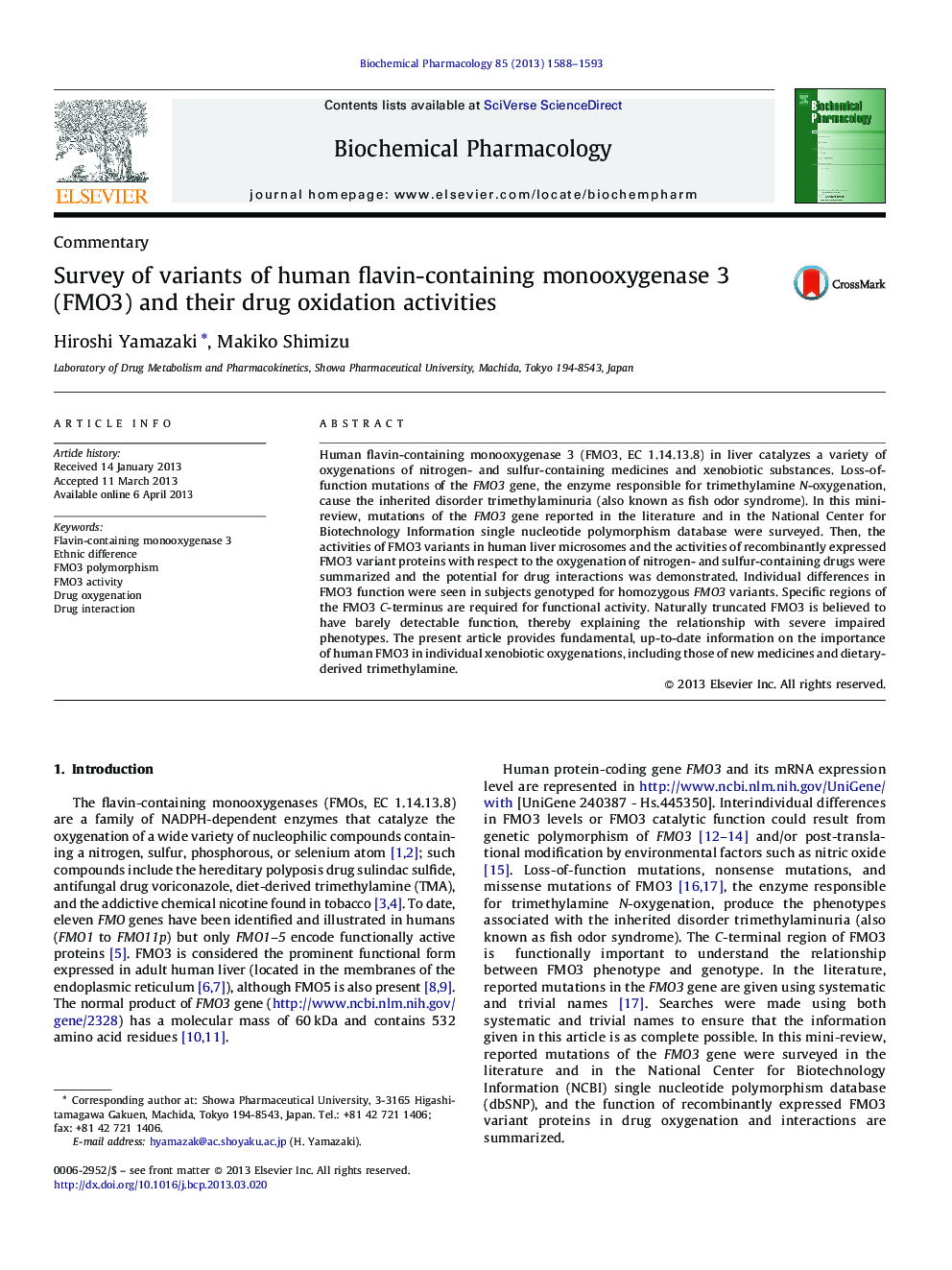| Article ID | Journal | Published Year | Pages | File Type |
|---|---|---|---|---|
| 2512496 | Biochemical Pharmacology | 2013 | 6 Pages |
Human flavin-containing monooxygenase 3 (FMO3, EC 1.14.13.8) in liver catalyzes a variety of oxygenations of nitrogen- and sulfur-containing medicines and xenobiotic substances. Loss-of-function mutations of the FMO3 gene, the enzyme responsible for trimethylamine N-oxygenation, cause the inherited disorder trimethylaminuria (also known as fish odor syndrome). In this mini-review, mutations of the FMO3 gene reported in the literature and in the National Center for Biotechnology Information single nucleotide polymorphism database were surveyed. Then, the activities of FMO3 variants in human liver microsomes and the activities of recombinantly expressed FMO3 variant proteins with respect to the oxygenation of nitrogen- and sulfur-containing drugs were summarized and the potential for drug interactions was demonstrated. Individual differences in FMO3 function were seen in subjects genotyped for homozygous FMO3 variants. Specific regions of the FMO3 C-terminus are required for functional activity. Naturally truncated FMO3 is believed to have barely detectable function, thereby explaining the relationship with severe impaired phenotypes. The present article provides fundamental, up-to-date information on the importance of human FMO3 in individual xenobiotic oxygenations, including those of new medicines and dietary-derived trimethylamine.
Graphical abstractFigure optionsDownload full-size imageDownload as PowerPoint slide
